Want to parse RDF Turtle file and save to Redshift?
Using File To DB, a native GUI tool for Windows, MacOS, and Linux, you can import RDF Turtle file (.ttl, .n3) to Redshift easily and fast.
- Can run in GUI mode, Step by Step, just a few mouse clicks.
- Can run in Command line, for Scheduled Tasks and Streams.
- Convert files locally and privately, avoid uploading large RDF Turtle file(s) to online services.
Import RDF Turtle file (.ttl, .n3) to Redshift
Choose Redshift and logon.
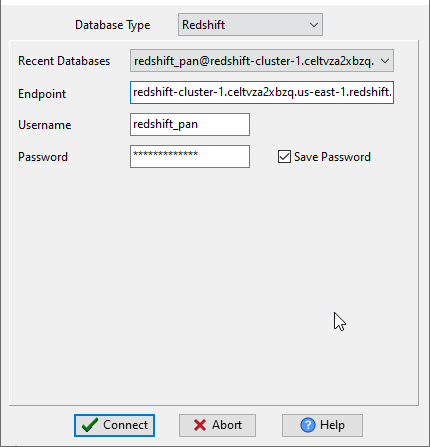
Click “Wizard – 1 File To 1 Table” at task dialog.
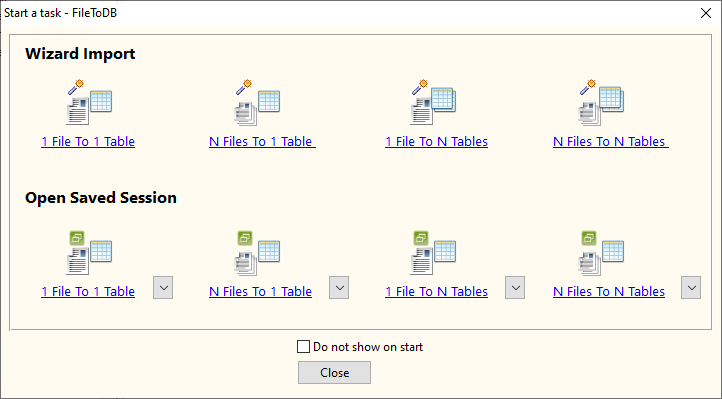
Select the “RDF” file type.
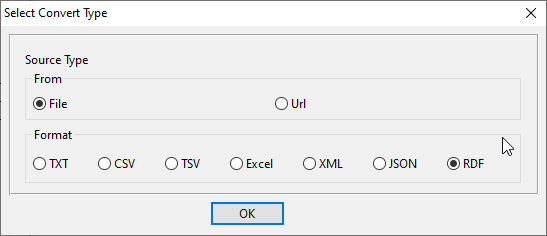
then show the wizard.
1. Open RDF Turtle file.
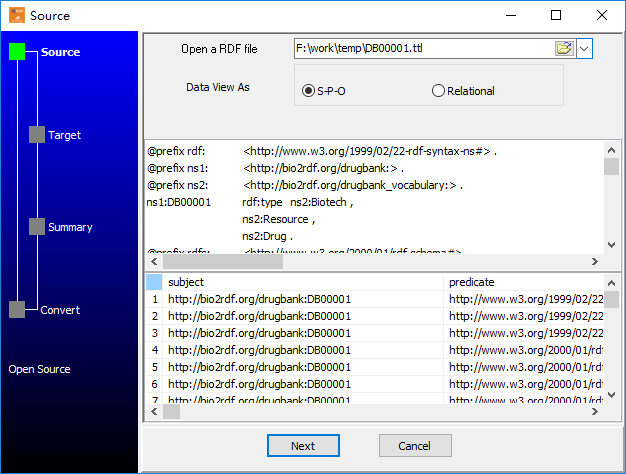
2. Select table and config fields.
You can create new Redshift table by RDF struct, just click 
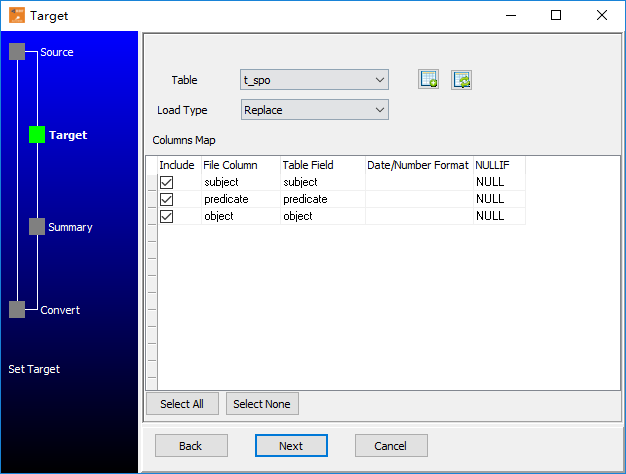
3. Summary.
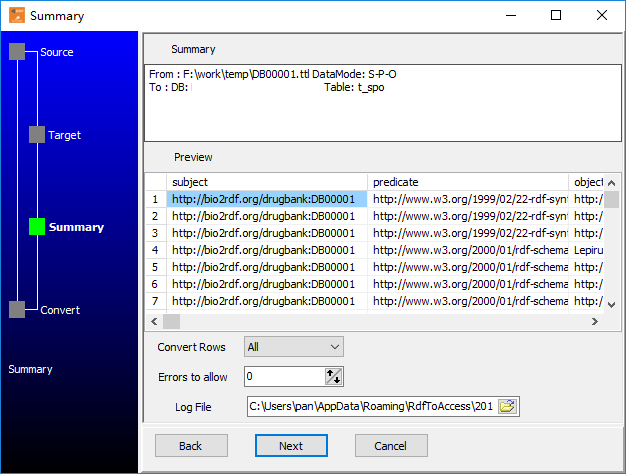
4. Import data from RDF Turtle file (.ttl, .n3) to Redshift.
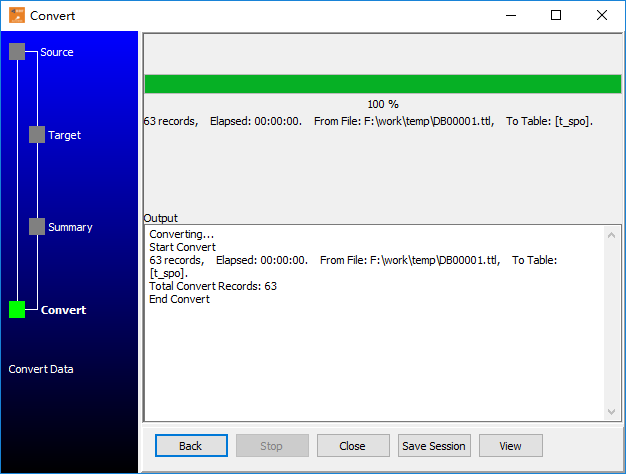
See importing results in Redshift table
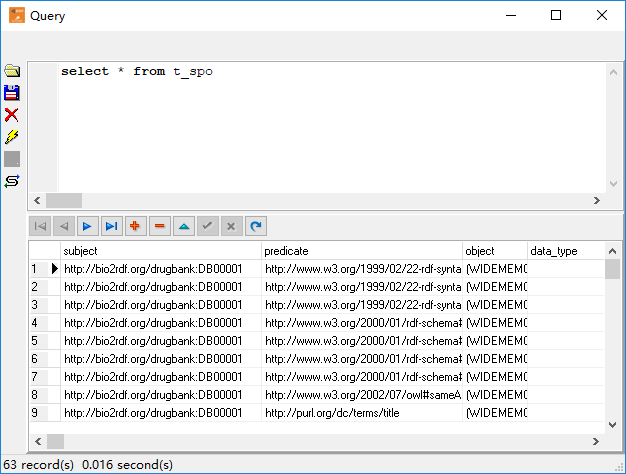
Convert RDF Turtle file (.ttl, .n3) to Redshift in command line
Save “RDF to Redshift” session, then you can:
- Convert RDF Turtle file (.ttl, .n3) to Redshift in Windows command line.
- Convert RDF Turtle file (.ttl, .n3) to Redshift in Linux command line.
- Convert RDF Turtle file (.ttl, .n3) to Redshift in macOS command line.
Set scheduled tasks for converting RDF Turtle file (.ttl, .n3) to Redshift
You can schedule and automate this importing task by:
1) Save session and create .bat file.
For importing other RDF formats: RDF/XML(.rdf, .owl), N-Triples(.nt, .ntriples), N-Quads(.nq, .nq), JSON-LD(.jsonld).

